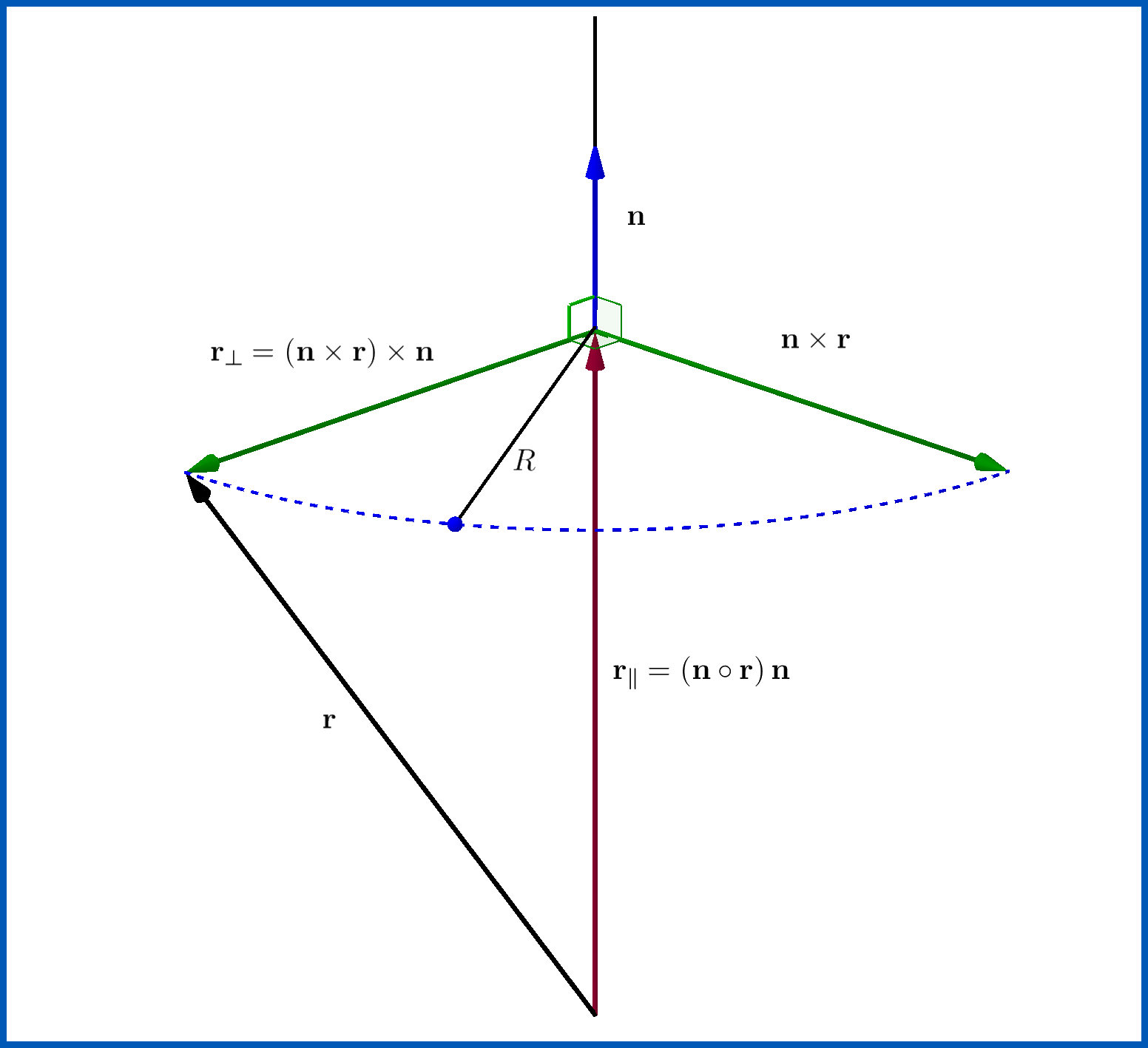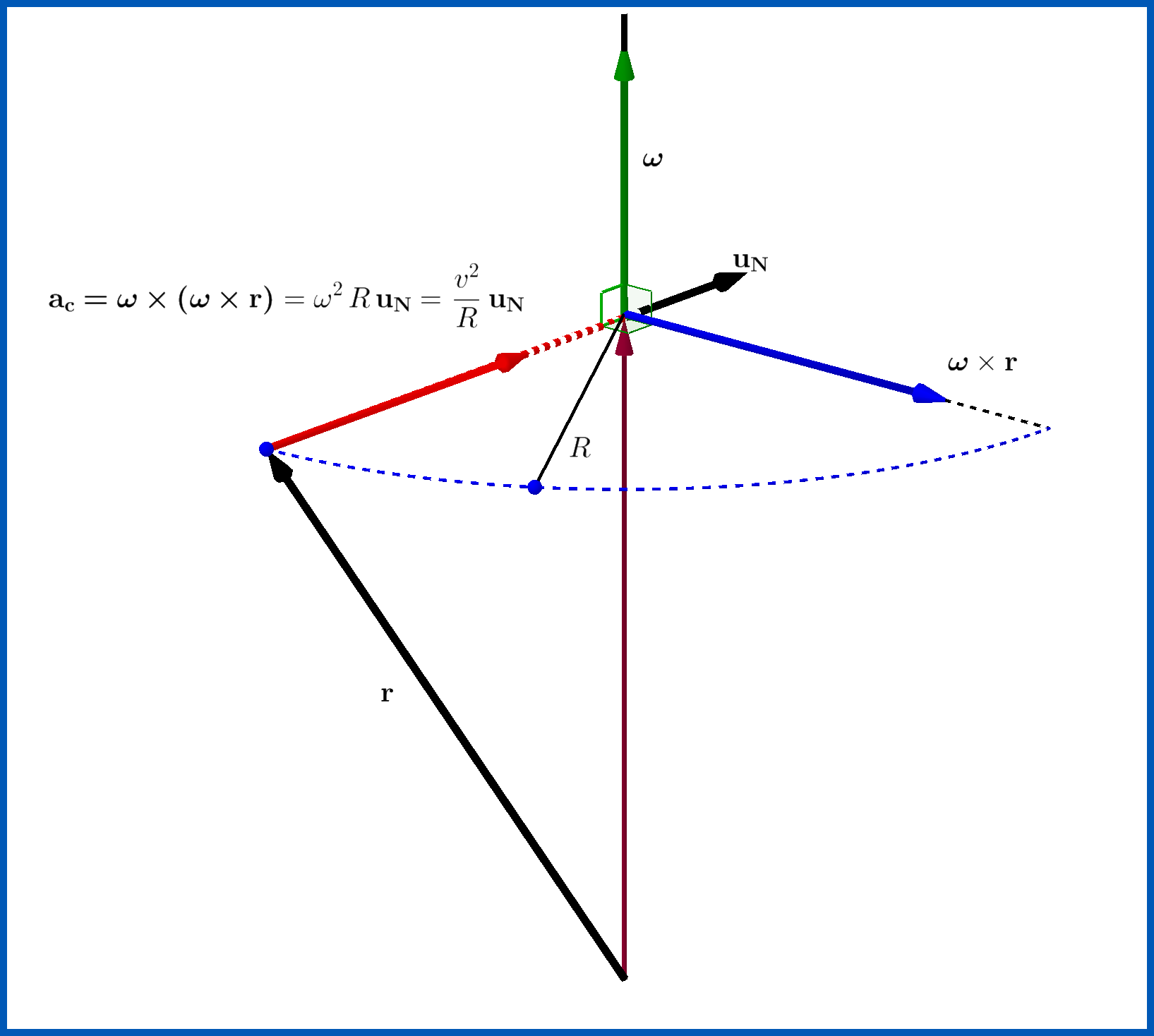For a circular motion centripetal acceleration can be expressed as $$a_{c}=\frac{v^2}{R} \hat{u_N}\tag{1}$$ Where $\hat{u_n}$ is the normal unit vector.
Nevertheless in the expression for acceleration in rotating reference frames I found the term
$$\vec{\omega}\times(\vec{\omega} \times \vec{r})\tag{2}$$
Is there any conceptual difference between $(1)$ and $(2)$? Or the acceleration is the same besides the fact that in $(1)$ it is expressed in curvilinear coordinates, while the expression $(2)$ is frame-indipendent?


